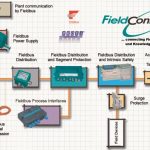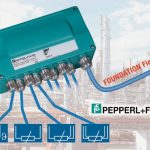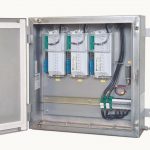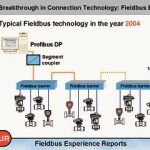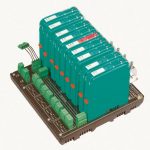Fieldbus topologies according to the high-power trunk concept form the basis of several major automated process production plants. Fully adapted explosion protection concepts for all hazardous areas as well as sophisticated redundancy, protection and diagnostic functionalities are implemented by means of modular Fieldbus installation systems. Modern installation systems are supported by easy-to-use planning and design tools which reduce the effort for design and layout control of a fieldbus network significantly.
Thomas Kasten
In 2002, when fieldbus in process automation was heavily under discussion and testing but almost never used in major production plants, the Furios study was presented at the Namur General Assembly. This marked the turning point from simply talking about fieldbus to actually implementing it. Furios (Fieldbus and remote I/O system comparison) was carried out by Aventis Pharma Germany, now Sanofi Aventis, and Infraserv Höchst Technik with the support of renowned manufacturers of process automation equipment. The basis was the newly developed fieldbus barrier technology, which separates the two functions “fieldbus power supply“ and “protection by intrinsic safety“. This novel high-power trunk concept allows significantly more power to be supplied to the fieldbus devices in hazardous areas than with the hitherto applied Entity or Fisco fieldbus intrinsically safe concepts. By following the recommendations given in Furios, it is possible to realise the benefits of fieldbus technology to the fullest extent, be it in safe or hazardous areas. Among the expected benefits were a reduction in the plant’s lifecycle costs, a reduction in project runtime and personnel training expenditure, enhanced diagnostic data for asset management and preventive maintenance and even certain savings in installation costs compared to remote I/O systems.
The recommendations included the design of fieldbus networks using clear line topologies with fieldbus devices connected to one trunk by means of individual spur cables and fieldbus distributors, the use of fieldbus process interfaces to collect conventional signals and, of course, the implementation of the high-power trunk concept. This will be explained in the following by looking at a typical Profibus PA or Foundation Fieldbus H1 segment. The modules of a comprehensive fieldbus installation system needed for a safe, highly available fieldbus segment can be grouped in several functionality blocks. Field devices and host systems are not part of the installation system, but they are mentioned here to complete the picture.
Field devices and fieldbus process interfaces
Intelligent field devices with communication chipsets for either Profibus PA or Foundation Fieldbus H1 communicate digitally directly with each other or the controller. Since no signal conversion is neces-sary, the danger of conversion errors or tolerance accumulation is eliminated. This could mean a chance to use less precise, less expensive sensor types. Multi-variable devices could reduce the number of measuring points in the process, and the real-time availability of diagnostic data could facilitate preventive maintenance and asset management.
For simple sensors and actuators such as digital switches, thermocouples or RTDs, the cost of the chipset far exceeds the cost of the device itself, and an individual fieldbus address for a simple open/close valve would stress the fieldbus communication cycle unnecessarily. Fieldbus process interfaces allow several such signals to be condensed into one fieldbus telegram and thus conventional signals integrated into fieldbus communication. In the case of Foundation Fieldbus H1 several such interfaces exist for temperature and digital I/Os, while for Profibus PA modular systems with appropriate PA gateways allow almost all conventional signals existing in a process production plant to be collected.
Fieldbus signal transmission
Fieldbuses according to IEC 61158-2 combine device power supply and digital communication signals on the same pair of wires. The standard specifies several cable types, of which only the shielded twisted pair type A permits the maximum network dimension to be reached with a total of 1900 cable metres. Type A is defined as the reference cable and the recommendation for full fieldbus networks. Comprehensive fieldbus installation systems offer type A cables in different wire gauges, sheathing colours, optional armour for mechanical protection and a choice of plug connectors.
Depending on the location of the plant and the safety philosophy of the user, additional protection against voltage surges and lightning strikes could be required. Specific fieldbus surge protectors are available for installation either in the control room or in the field to facilitate the implementation of a lightning protection zones concept according to IEC 61312-1. Modular versions integrate further functions such as marshalling and segment power shut-down.
Fieldbus distribution
For easy connection of the field devices to the fieldbus trunk, so-called junction boxes should be used. A wide variety are available to take account of the structure of the specific plant, from versions with just one spur output to distributors with 12 connection points. In order to meet the requirements of the various applications, the distributors are available in many connector type and housing variants, such as aluminium or stainless steel, even customised to cater for specific process designs.
A short-circuit in any one of the connected field devices would close down the complete fieldbus communication. In order to prevent this, certain fieldbus distributors offer short-circuit current limitations for each individual spur, so that only the affected device goes offline and all other devices keep on communicating. Thus, the faulty device can easily be identified and repaired. Advanced versions, so-called segment protectors, are certified according to EEx nA[L] for Zone 2 / Class I, Div. 2 applications. In conjunction with appropriate power supplies, they allow high-power trunk concepts to be implemented.
Fieldbus distribution and intrinsic safety
The intrinsic safety Ex i explosion protection method is very often required for Zone 1 / Class I, Div. 1 applications, since only this method allows maintenance work on the devices in live operation without further precautionary measures. Sophisticated fieldbus distributors, referred to as fieldbus barriers, not only offer short-circuit current limitation for each spur but also allow the intrinsically safe connection of accordingly certified field devices. This high-power trunk concept for Zone 1 forms the basis of the growing acceptance of fieldbus technology in process automation, as proven in the Fieldbus Experience Reports presented at the Namur General Assembly in No-vember 2004.
Specific RC modules are required in order to prevent digital signal distortions by reflections. Modern fieldbus installation systems have these terminators integrated in the system modules, but also offer separate versions either for control room or field installation.
Support tools for planning a fieldbus network
A support tool that was used to design several of the fieldbus plants presented at the Namur General Assembly in 2004 was the Segment Checker fieldbus design software tool. This planning tool allows quick and easy layout of fieldbus segments by simple drag and drop from a device catalogue, which includes all modules necessary for fieldbus installation as well as a selection of field devices. Once the network dimensions and environmental parameters have been entered, the energy calculation as well as the evaluation of fault conditions and system integrity are performed automatically. The results are provided as a text file, including a bill of materials, and form a good basis for plant detail planning. Segment Checker can be used flexibly, as it is possible to add individual field devices as well as integrate additional field device catalogues.
Fieldbus power supply
An essential component of any fieldbus segment is the power supply, which ensures impedance matching for coupling the DC supply current with the AC amplitude of the digital fieldbus signal from the host. Modular power supply systems offer a choice of different motherboards and power modules to meet any requirement, from a simple segment without any special protection needs up to four parallel segments with redundant host connections, advanced diagnostic functionality and redundant power modules with galvanic isolation.
In addition to stable, error-free signal transmission, high operational reliability is required because all field devices connected to the segment would fail simultaneously in case of a power supply failure. For this reason, modern systems like the modular FieldConnex power hub offer a number of protection mechanisms, such as passive impedance matching for minimum heat stress, redundancy concepts for electronic modules, bulk power supply and host connections as well as advanced diagnostic features and protection against resonance and crosstalk using the novel Crest technology.
cpp 426
Download Segment Checker
More about Pepperl+Fuchs
More information about Furios
Share:



